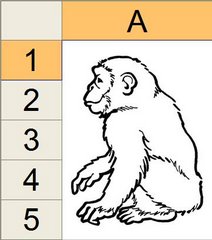 So it was Fathers' day (in the UK, at least) yesterday, so in a spirit of family solidarity, we dumped the chimplets with the nanny and spent the day at the finals day of the laughably re-branded 'Artois Championship' at the Queen's Club. I guess they're trying to move away from the violent drunk / wife beater image of 'Stella', which used to be the tournament's name. It's all rather academic at somewhere like Queen's - the ruling classes are more likely to get into a heated discussion about whose son is better at sailing after a jug of Pimms than get into a full-blown-paramedic-requiring punch up after 8 pints of industrial lager.
So it was Fathers' day (in the UK, at least) yesterday, so in a spirit of family solidarity, we dumped the chimplets with the nanny and spent the day at the finals day of the laughably re-branded 'Artois Championship' at the Queen's Club. I guess they're trying to move away from the violent drunk / wife beater image of 'Stella', which used to be the tournament's name. It's all rather academic at somewhere like Queen's - the ruling classes are more likely to get into a heated discussion about whose son is better at sailing after a jug of Pimms than get into a full-blown-paramedic-requiring punch up after 8 pints of industrial lager.As for the tennis - the men's final was surprisingly good (Queen's matches are usually 6-2 6-2 walkovers, completed in 40 minutes) - Andy Roddick, who despite, according to my source, being rather unpopular at the Surbiton Lawn Tennis Club for being a bad loser (so terribly British to have a detailed etiquette of losing), overcame a Frenchman in three sets, taking a little over two hours, although it boiled down to a handful of crucial points. Some sort of lesson about the arbitrariness of victory and defeat, but I'm not sure what. We then watched a dull doubles final which included the hilariously-titled partnership of Bryan & Bryan. Simply add 'LLP' to the end, and you have a regional accounting firm.
A new element of circus was added to match by the introduction of 'Hawkeye', some sort of electronic gizmo that tells you definitively whether the ball was in or out. So, if your ball is called out by the line judge and you think they're wrong, you stick your finger in the air to appeal the call. The crowd then looks up in expectant silence at the big scoreboard, which draws a pretty picture of the point, and flashes up whether the ball was in or out.
As an investigative accountant, I applaud the triumph of fact over opinion - it's a peculiarly British approach to sport (I think we invented tennis, didn't we?) that teaches players that it's more important to accept a blatantly wrong decision than to upset convention by challenging it.
The problem is that each player only gets three calls per set if they subsequently turn out to be wrong - which is fine if it stops players chancing it and challenging every call, but what if you challenged three calls which turned out to be very marginally OK (there was literally one pixel between the ball and the line on a couple of the calls yesterday), then don't have the opportunity to challenge a fourth? Stand by for law suits. At least half of the challenges made resulted in the original call being over-ruled - makes you wonder about the quality of the line judges. Why not ditch the lot of 'em and have instantaneous electronic scoring? Think of the payroll cost savings.

No comments:
Post a Comment